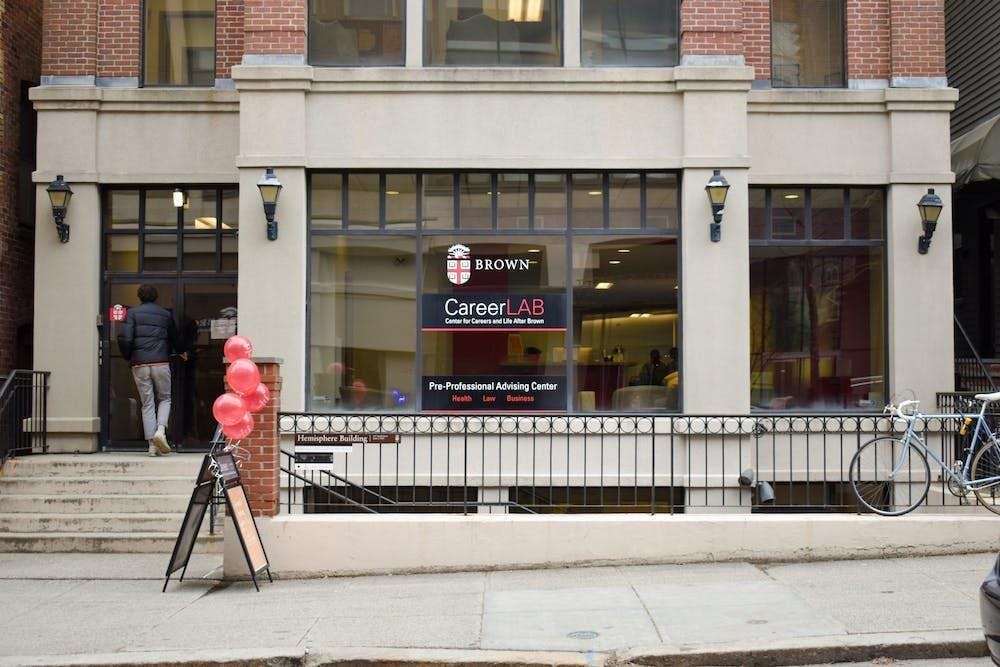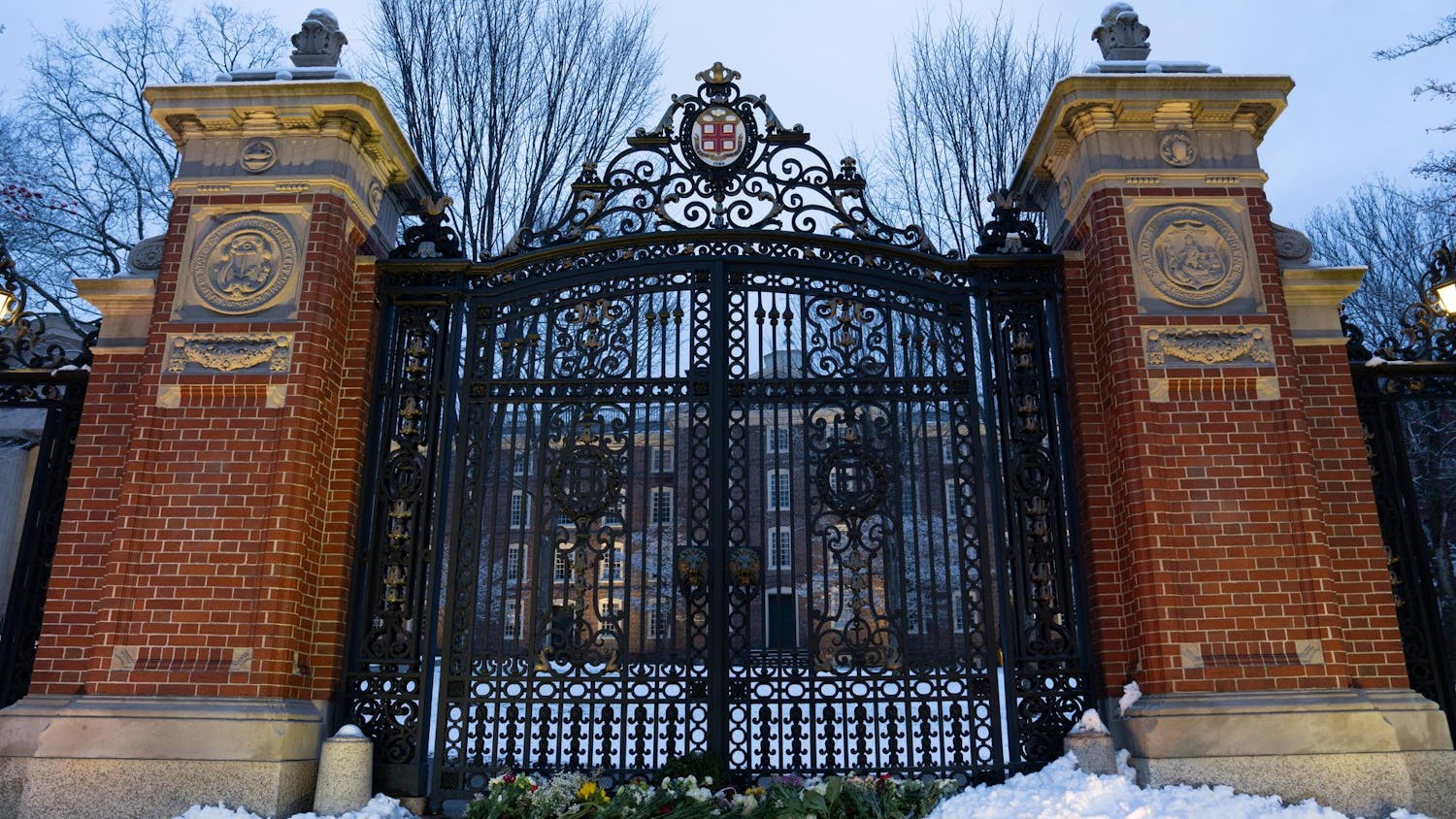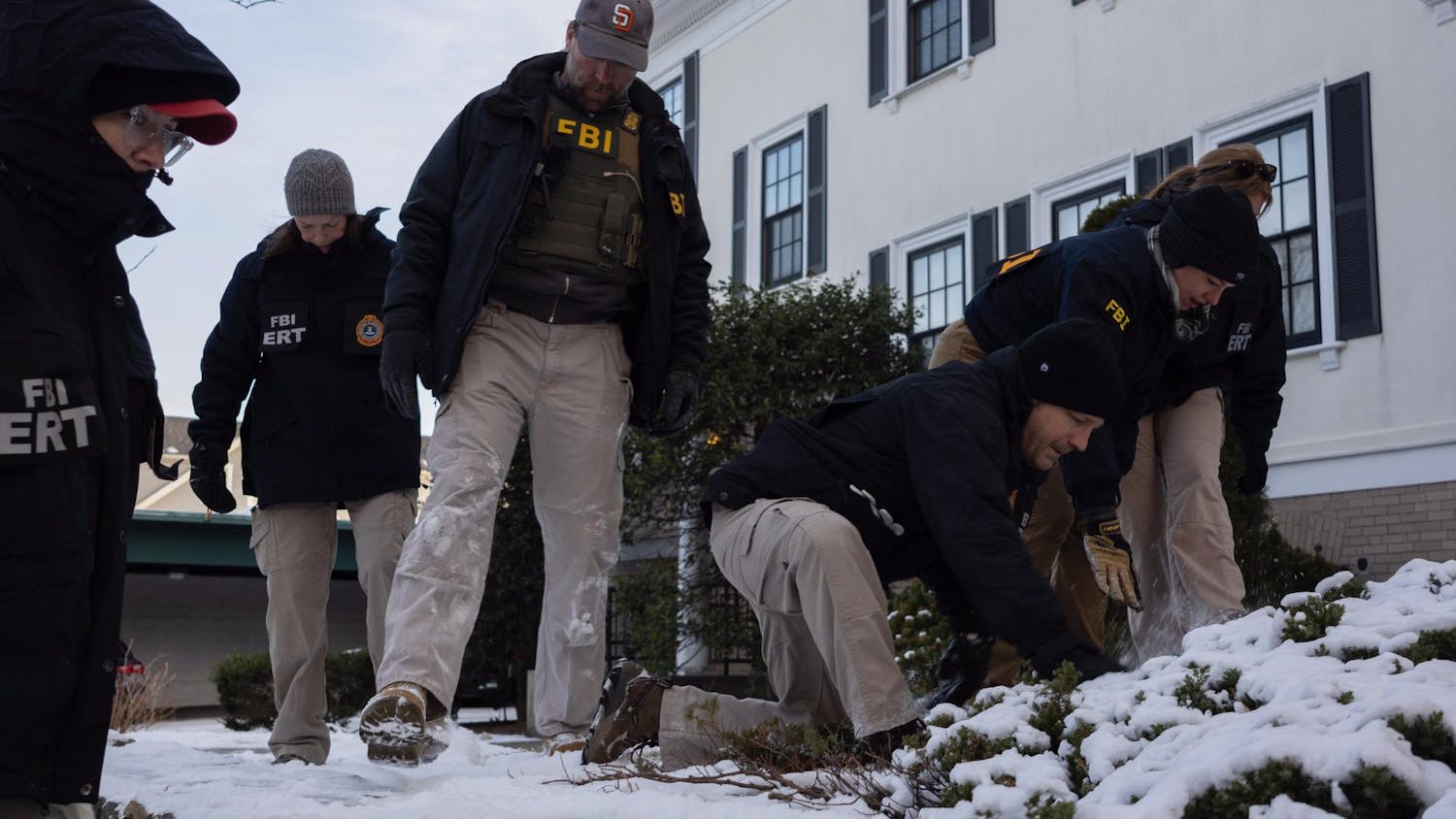Nearly two months into President Trump’s second term, efforts to slash the federal workforce have left thousands without jobs — including some students seeking to enter civil service as interns or employees.
On Jan. 20, Trump signed an executive order enacting a 90-day freeze on all federal civilian hiring. Following the order, the federal government sent a flurry of emails canceling or putting student internships on hold.
Fiona Harrington ’25 had been interning in the National Weather Service’s Office of Observations for over a year. On Feb. 27, she was sent an email at 3:40 p.m. notifying her she was terminated effective at 5 p.m. the same day.
As an intern in the federal government’s early-career Pathways Internship Programs, Harrington would have been eligible for full-time employment in the federal government after graduating college. But the termination crushed her hopes of working for the government after her internship.
At the NWS, Harrington, an environmental science concentrator, conducted spatial data analyses to determine where to place new water buoys. After working in the role full-time during summer 2023, Harrington continued to work part-time during the school year and over the next summer, she said.
“I really enjoyed it,” Harrington said, adding that her coworkers were “definitely some of the best people I’ve ever worked with” and helped her expand her professional network.
But leading up to her termination, Harrington started looking for other post-graduation jobs because she began considering “the possibility that my position wouldn’t be guaranteed once I graduate,” she said.
On March 17, less than three weeks after she was terminated, Harrington received a letter from the U.S. Department of Commerce, informing her that she was now on a “paid, non-duty status,” meaning that she would not be actively working but would still be paid. The letter referenced a March 13 order from a Maryland federal district court judge that required the reinstatement of thousands of probationary employees.
In an email to The Herald, Harrington wrote that she was unsure of what her reinstatement letter meant for her future at the National Weather Service, but the letter noted that she could be fired again if the order was overturned.
The White House did not respond to a request for comment.
“I think it is just really disheartening,” Harrington said in an interview with The Herald before her reinstatement. “I feel like it’s really just discouraging people from going into the environmental field at all.”
Sophia Janssens ’27 was considering applying for a position in the Environmental and Natural Resources division of the Department of Justice. But after seeing Trump’s executive orders from his first day in office, she reconsidered.
“I don’t think that there would be any real progress made” in the environmental field, she said. Instead, Janssens is applying to other internships in environmental law and policy and said she is just “hoping for the best.”
“The short-term plans for students interested in federal jobs will change drastically,” wrote Jim Amspacher, assistant dean of the College for Careers in the Common Good and director of the Professional Pathways Programs, in an email to The Herald.
“There is nothing good about having an internship or job offer rescinded by forces out of your control,” he added. “It feels terrible.”
“There’s a general sense of anxiety” in the environmental field, Alexander Lee ’25 said. “Because things are changing so rapidly in the federal government, it’s kind of hard to say what my career field will look like in the next few months.”
Lee began applying for positions in the federal government over winter break, but after the hiring freeze, he began receiving emails that said the Environmental Protection Agency and the U.S. Patent Office were no longer hiring for entry-level positions.
“It seems like it’s going to be difficult to get a federal position at least for the next two years, and especially for environmental engineering,” he said.
Now, Lee has shifted his focus to state government positions and nonprofits. He added that he would be interested in working in the federal government in the future, but now that interest is currently “on the back burner.”
To help students still searching for summer and full-time positions, the Career Center has hosted events like the Feb. 7 Climate Careers Exploration Fair, at which Lee searched for opportunities in the environmental field.
The Career Center is also organizing workshops detailing “how to find internships and jobs in state and local government, which some students are considering as an alternative to federal work,” Amspacher wrote.
“Some are looking for Congressional jobs or other policy or advocacy positions in D.C.,” Amspacher added. But others “are reconsidering their plans entirely.”
For Nicholas Sanzi ’25, working in the federal government was “kind of a dream for a little bit.”
Sanzi’s dad was a police officer and his mom is a teacher, “so public service was always kind of baked into the equation” for him, Sanzi said. During summer 2023, he interned in the U.S. Department of Commerce, where he worked on expanding internet access nationwide through a broadband infrastructure program.
“It was very apparent to me that though the bureaucracy was large, it had an immense capacity for good,” Sanzi said. “And I wanted to be part of that.”
This fall, Sanzi worked on the Harris-Walz campaign in North Carolina. When Harris lost the election, the “calculus changed,” Sanzi said, but he continued to apply for positions in the Department of the Treasury.
Due to the saturation of the job market, Sanzi said he’s had to “broaden the scope” of jobs he is considering.
Students participating in Brown in Washington, a program that matches students with internships on Capitol Hill, have not been impacted by the recent federal actions, according to Jocelyn Frelier, the associate director of the program.
This isn’t the first time that Brown students have had job offers rescinded from the federal government. According to Amspacher, the Career Center also helped students navigate rescinded positions and narrowed job markets during the COVID-19 pandemic and the 2008 financial crisis.
“There are many other paths students can take to reach their long-term career goals. Career Center staff are ready to help students identify other options and navigate those paths,” he continued.
While the future is uncertain, Frelier said she is “optimistic that there will be a rebound in the number of opportunities available to students.”

Ethan Schenker is a university news editor covering staff and student labor. He is from Bethesda, MD, and plans to study International and Public Affairs and Economics. In his free time, he enjoys playing piano and clicking on New York Times notifications.

Hadley Carr is a university news editor at The Herald, covering academics & advising and student government.





